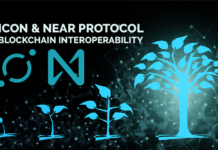What makes ICON Bridge different from other bridging solutions out there?
And what the heck is BTP 2.0? What happened to BTP 1.0?
Putting (Most of) BTP to the Test
Let’s begin with the first question, which was inspired by self-described “Chicago Iconist” Valentino, who on Twitter called for a “fully operational BTP and not this ICON Bridge nonsense that doesn’t separate it from anything else in the industry.”
I, too, wondered what made ICON Bridge so special. BTP — at least as it was initially conceived — is a completely trustless interchain solution, which clearly sets it apart. ICON Bridge, on the other hand, requires the ICON Foundation as a middleman. Not so special.
In a recent interview (written by me, by the way), even ICONLOOP lead software engineer Moonkyu Song laments that ditching cryptographical verification in ICON Bridge “removes everything that makes BTP unique,” though he agrees with the rationale for the move.
Well, I asked ICON strategist Scott Smiley what makes ICON Bridge different and, ultimately, valuable.
He responded with an important point. While ICON Bridge might be similar to other bridging solutions, “It runs all but one component of BTP, so we get valuable data on key components to the system and how they perform.”
In other words, rather than sit around on our hands and do nothing while the engineers plug away at the gas fee problem, we’ll deploy ICON Bridge and obtain very valuable data by putting “BTP-Minus-Cryptographical Verification” through its paces.
BTP 2.0
ICON is currently working on developing BTP 2.0. This might seem odd, as we’ve yet to see BTP 1.0.
Well, perhaps we should begin with definitions.
ICON Bridge is BTP 1.0, preferred nomenclature notwithstanding.
BTP 2.0 is the “fully functional BTP,” complete with the cryptographical verification that would make completely trustless interchain communication possible.
However, Scott notes BTP 2.0 will include other improvements as well. These include:
- Arbitrary Call Service: According to ICON’s development roadmap update from March, Arbitrary Call Service “offers a framework for making generic cross-chain smart contract calls, which provides developers with the flexibility to make unique and complex cross-chain dApps that are not bound by the limitations of a purpose-built bridging service.”
- Upgrades to the core ICON Network to optimize for BTP (BTP Blocks, Verifier Whitelist)
He also notes cryptographical verification may come earlier with some partner networks that are “gas efficient.”



